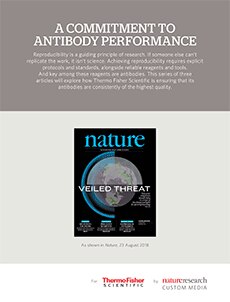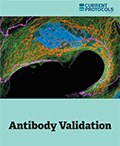Invitrogen Antibody Validation*
- ‹ Antibodies
- Immunoprecipitation-Mass Spectrometry (IP-MS) Antibody Validation
- Knockout and Knockdown Antibody Validation
- Independent Antibody Validation
- Peptide Array Antibody Validation
- Cell Treatment Antibody Validation
- Neutralization Antibody Validation
- Relative Expression Antibody Validation
- SNAP-ChIP Antibody Validation
- Primary Antibodies
- Secondary Antibodies
- Custom Antibodies
- Biotin Binding Protein Conjugates
- Antibody Production
- Antibody Purification
- Antibody Labeling Kits
- Immunoassays
- Antibody Performance Guarantee
- Antibodies Learning Center
- eBioscience
- eLearning Courses

A commitment to antibody performance
Antibodies are some of the most critical research reagents used in the lab. Poor specificity or application performance can significantly frustrate the ability to obtain good results, which can cause critical delays. Underperforming antibodies result in a lack of reproducibility, wasting time and money. In other words, researchers need antibodies that bind to the right target and work in their applications every time. To help ensure superior antibody results, we've expanded our specificity testing methodology using a 2-part approach for advanced verification.

Nature articles: reproducibility, validation and specificity tests
In collaboration with Nature, learn more about Thermo Fisher Scientific’s commitment to antibody validation and performance. This series of 3 articles explores the reproducibility crisis, protocols and standards, and our specificity testing methodology with data from numerous antibodies and pathways.









